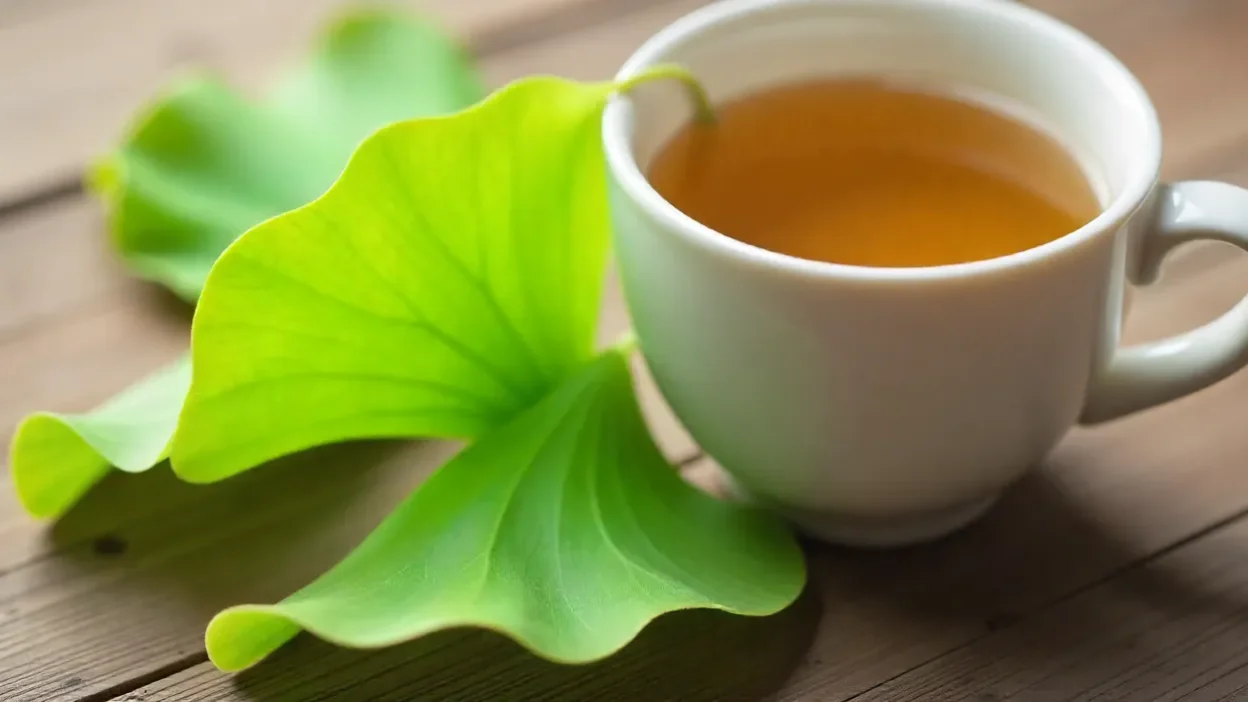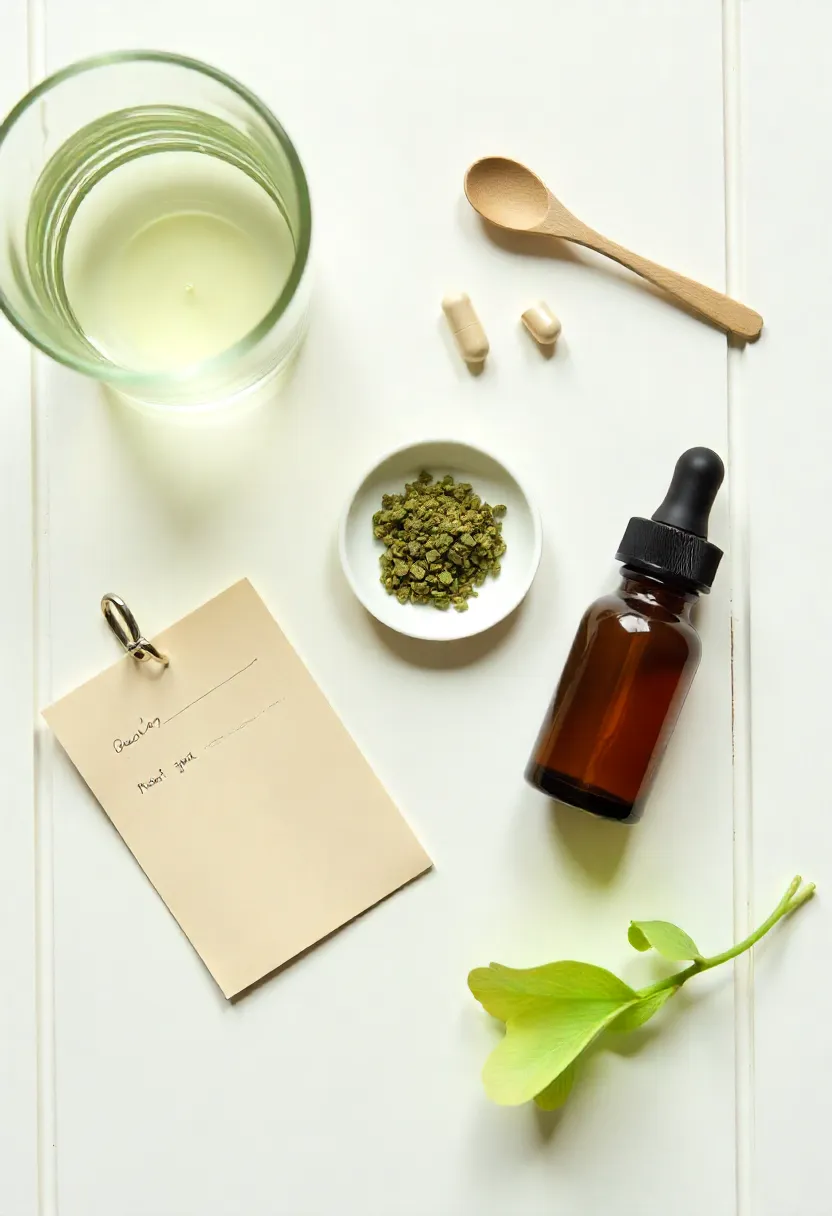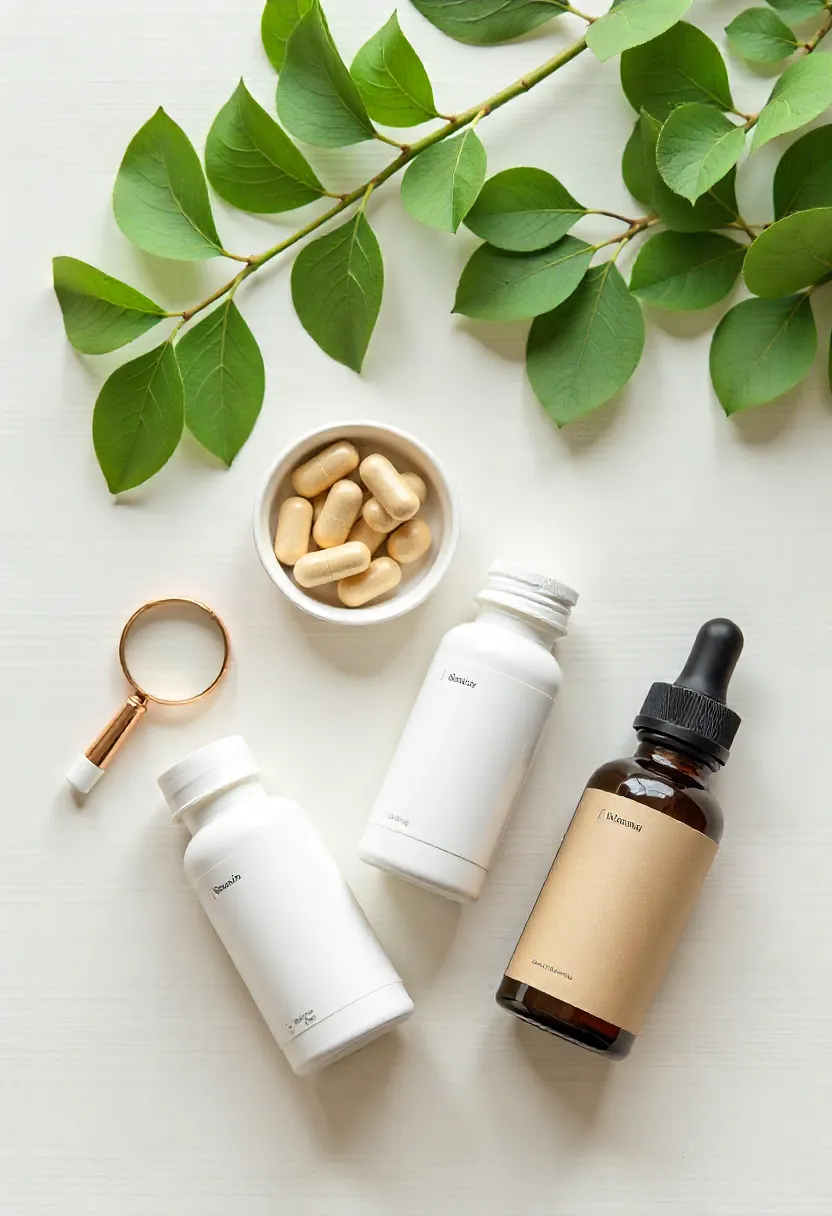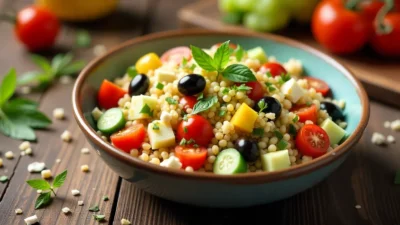Contents
There’s something comforting about turning to nature when we look for ways to support our health — especially in a world where our minds feel full, our days feel fast, and our bodies quietly ask for balance. Among the oldest living tree species on Earth, ginkgo biloba has traveled from ancient temple gardens in China to modern wellness shelves, earning a place in conversations about brain support, memory, and circulation.
Today, ginkgo is one of the most widely used herbal supplements in the world. It’s often praised as a “memory herb” or a natural mood and focus ally. And while tradition gives it a compelling story, science adds helpful context — giving us a clearer understanding of what this plant may offer and where more research is needed.
Inspired by insights from BBC Good Food’s guide on ginkgo biloba, this article explores its potential benefits, traditional use, scientific research, safety considerations, and who it may be right for. Our goal isn’t to sell miracles — it’s to provide grounded, friendly, and balanced information so you can make mindful choices about your wellness routines.
Before we begin, an important note:
Ginkgo biloba can influence blood flow and may interact with medications. This article is not medical advice, and anyone considering supplements — especially if pregnant, breastfeeding, approaching surgery, or taking medication — should speak with a healthcare professional first.
With that said, let’s explore the story of ginkgo — from ancient leaf to modern wellness conversation — and see where it might fit into a thoughtful, balanced lifestyle. 🌿✨
What Is Ginkgo Biloba?
Imagine a tree so ancient it stood long before the dinosaurs — and survived them.
That’s ginkgo biloba. Often called a “living fossil,” this remarkable tree has existed for over 200 million years, earning a sacred place in traditional Eastern medicine and now a respected spot in Western wellness culture.
Ginkgo originated in China, where it grew near temples and was believed to support vitality, memory, and long life. Its golden fan-shaped leaves became a symbol of endurance and harmony — and you’ll still see them scattered across monastery courtyards and autumn streets in Asia today. 🍂
Today, ginkgo is used worldwide, not as a casual herb, but as a standardized extract found in supplements like tablets, capsules, tinctures, and teas. Most modern research focuses on concentrated extracts (especially those standardized for key antioxidant compounds like flavonoids and terpenoids), rather than simply steeping leaves in hot water.
Why People Take Ginkgo Today
Ginkgo is commonly explored for:
- Supporting memory and cognitive function
- Enhancing circulation, particularly to the brain and limbs
- Antioxidant properties that may help protect cells from oxidative stress
- Promoting general brain and mental wellness
You’ll often hear people describe ginkgo as an herb for “mental clarity,” “focus,” or “healthy aging.” While modern science still has questions and ongoing studies (and results can vary from person to person), the interest remains strong — especially for those seeking natural support alongside healthy lifestyle habits like good sleep, movement, and balanced nutrition.
Ginkgo isn’t a trend — it’s a plant with history, tradition, and promising research behind it. Next, we’ll explore the potential benefits and what recent studies have to say about them. 🌱🧠
Potential Benefits of Ginkgo Biloba (What Research Suggests)
Ginkgo has gathered a lot of attention for one main reason:
people hope it can help keep the mind sharp and support healthy aging. And while no supplement can promise miracles, ginkgo has shown potential in several key areas — especially when paired with overall wellness habits.
Let’s look at where research is most interested 👇
🧠 Cognitive Function & Memory Support
Ginkgo is often associated with improved memory and mental clarity.
Some studies suggest it may help support:
- Working memory
- Focus and cognitive processing
- Mental sharpness in older adults
Researchers believe this may be due to ginkgo’s potential effect on blood flow to the brain and cell-protective antioxidants. Results vary, but many people use it to support long-term brain wellness.
🫀 Circulation & Cardiovascular Support
Another area where ginkgo may shine is circulation.
It’s thought to help maintain healthy blood flow, particularly to the brain and extremities, which may benefit:
- Hands and feet that feel cold easily
- Cognitive function related to blood circulation
- General cardiovascular wellness routines
While this doesn’t replace cardiovascular exercise or medical treatment, ginkgo may play a supporting role.
🛡️ Antioxidant Protection
Ginkgo leaves contain flavonoids and terpenoids, plant compounds with strong antioxidant properties.
Antioxidants help combat oxidative stress — a natural process linked to aging and inflammation. That’s one reason ginkgo often appears in “longevity” and “brain health” formulas.
😊 Mood & Calm Support
Some early research suggests ginkgo may help with:
- Mild tension or stress
- Mood support in older adults
- Mental fatigue
The effects are subtle, but some people describe feeling “mentally lighter” or more balanced.
A Gentle Reality Check
While promising, ginkgo is not a quick-fix or universal brain booster.
Studies show mixed results — and effects tend to be more noticeable with consistent use over time, not overnight.
And like all supplements, ginkgo works best as part of a whole-body approach:
🥗 Nutrient-rich diet
🚶♂️ Movement & circulation
🧘♀️ Stress management
😴 Restful sleep
📚 Mental stimulation
Think of ginkgo as a support tool, not the star of the show.
How Ginkgo Is Used & Dosage Considerations
If you walk into any health store, you’ll likely see shelves of ginkgo in different forms — teas, tinctures, tablets, powders. But here’s the important thing: most of the research on ginkgo uses standardized extracts, not leaf-only teas or casual supplements.
That doesn’t mean tea can’t be lovely and soothing 🍵✨
—but when people talk about studied effects, they’re usually referring to standardized ginkgo extract.
Common Ways Ginkgo Is Used
- Tablets or Capsules (most common and research-backed)
- Liquid Extract / Tincture
- Tea made from dried leaves
- Powdered leaf options
Typically, standardized extracts list something like:
“24% flavone glycosides, 6% terpene lactones”
That’s a good sign of a properly formulated product.
Typical Dosage Ranges Seen in Research
Supplement doses in studies often range around:
- 120–240 mg per day, usually divided into 2 doses
Some people start with lower amounts and increase slowly.
Important:
More isn’t better. Higher doses don’t equal stronger results — they may only increase the chance of side effects.
How Long Until You May Notice Effects?
Many users and some studies suggest effects (if they occur) may take:
⏳ 4–12 weeks
Herbal wellness often works gradually, not instantly.
What to Pair It With
Ginkgo may work synergistically with:
- Gentle daily movement (walking, mobility, stretching)
- Brain-supporting foods (omega-3s, leafy greens, berries, nuts)
- Hydration
- Balanced sleep routine
These habits create a foundation where herbs can support — not replace — healthy living.
Before You Start
Because ginkgo may affect blood flow and interact with medications, you should check with a healthcare provider before using it, especially if you:
- Take blood thinners (e.g., warfarin, aspirin)
- Take antidepressants or anti-seizure medication
- Are pregnant or breastfeeding
- Have bleeding disorders
- Are scheduled for surgery
Your safety always comes first 🌿🤍
Who Might Consider Ginkgo Biloba — And Why
Natural supplements often speak loudest to people who want to support their wellbeing gently and proactively — not with quick fixes, but with habits rooted in tradition and science. Ginkgo fits that mindset. While results vary from person to person, some groups are especially drawn to it.
Here’s a thoughtful, balanced look at who may explore ginkgo — and why:
🧠 Individuals Interested in Cognitive Wellness
People looking to support:
- Memory
- Focus and mental clarity
- Long-term brain health
Ginkgo is often discussed in the context of healthy aging, lifelong learning, or supporting the mind through busy modern life.
👵 Adults Supporting Healthy Aging
Ginkgo is sometimes used by older adults as part of a routine to:
- Support circulation
- Maintain cognitive function
- Promote antioxidant protection
For many, it’s a way to care for brain and vascular health over time.
💼 Busy Minds & Students
Some people explore ginkgo during periods of:
- Mental fatigue
- Concentration demands
- Study pressure
Though results vary, the idea is simple: gentle botanical support for a busy brain.
🧊 People with Circulation Concerns
Because ginkgo may help support blood flow, some individuals consider it if they:
- Often have cold hands/feet
- Want to support general vascular wellness
Of course, any circulation concerns should be discussed with a doctor first — supplements are not substitutes for medical evaluation.
✨ A Support — Not a Cure
Ginkgo may be appealing for those building a holistic wellness routine. But it is not:
- A replacement for medical treatment
- A guaranteed cognitive booster
- A substitute for sleep, stress care, hydration, or nutrition
Instead, think of it as a potential companion on a wellness path — one supported by movement, mindful eating, rest, and mental engagement.
Safety, Side Effects & Interactions
Like many herbal supplements, ginkgo biloba sits in that space between old-world wisdom and modern research — promising for some, neutral for others, and not without precautions. While many people tolerate it well, it isn’t a “take it and forget it” kind of supplement. Awareness matters here.
Ginkgo may gently influence blood flow, and that’s one of the reasons people explore it — but it’s also why care is needed. Individuals who take blood-thinning medication or have bleeding-related health conditions should be particularly cautious. Ginkgo can also interact with certain antidepressants, anti-seizure medicines, and diabetes treatments. This is why a check-in with a doctor or pharmacist isn’t just a formality — it’s part of safe, thoughtful wellness practice.
Most commonly reported side effects, when they do occur, tend to be mild: a little digestive upset, a slight headache, or a feeling of lightness. Some people also notice restlessness if they take it too late in the day. It’s also worth noting that raw ginkgo seeds should never be consumed — the supplement world uses processed extracts for a reason.
Pregnancy, breastfeeding, and pre-surgery periods are also times to avoid ginkgo unless a healthcare provider gives explicit guidance. And as with any supplement, quality matters. Choosing standardized, third-party-tested products from reputable brands helps ensure a safer and more consistent experience.
Herbs can be powerful in gentle ways. They deserve the same respect we give conventional treatments — curiosity paired with responsibility, tradition paired with science, and always, always an ear tuned to how your body responds.
Lifestyle Habits That Complement Ginkgo
Think of ginkgo as one piece of a wider wellness mosaic.
Herbal support works best when it rests on a foundation of habits that nourish the brain, support the nervous system, and protect circulation. If ginkgo is the “extra boost,” these are the daily practices that quietly do most of the work.
Start with movement — simple, consistent movement. A brisk walk in fresh air, gentle strength work, yoga that opens your chest and hips — these routines help blood flow, mood, and mental clarity just as much as any supplement. Your brain thrives when your body moves.
Then, look to your plate. Many of the same foods that support cognitive health are the ones you already know make you feel good: leafy greens, berries, olive oil, nuts, seeds, oily fish or plant omega-3s, beans, herbs, and colorful vegetables. A Mediterranean-style diet remains one of the best-researched ways to nourish the mind and support graceful aging.
Sleep plays its role too — perhaps the most underrated wellness tool we have. Deep rest reorganizes memory, clears metabolic debris from the brain, and restores emotional balance. No herb can replace the quiet magic of good sleep.
And finally, keep your mind alive. Read. Learn. Take a new route to the market. Listen to music that moves you. Challenge your memory gently — not with pressure, but curiosity. Cognitive resilience grows from engagement as much as from nutrition.
Ginkgo may offer a hand along that journey, but it isn’t the journey itself.
You build that through steady habits, small joys, and compassionate routines.
How to Choose a Quality Ginkgo Supplement
Not all ginkgo products are created equal — and this is one supplement where quality truly matters. The studies we hear about most often don’t use random powders or teas; they use standardized extracts with carefully measured active compounds. That standardization helps ensure consistency — something nature, beautiful as it is, doesn’t always deliver in equal doses.
When shopping for ginkgo, look for supplements that clearly state their extract composition. Many reputable formulas list something like 24% flavone glycosides and 6% terpene lactones — the same profile used in much of the clinical research. If a product doesn’t specify this, or the label feels vague or overly “marketing-y,” keep looking. Transparency is a sign of trustworthiness.
It’s also wise to choose brands that use third-party testing, meaning an independent lab verifies purity and potency. Certifications from NSF, USP, or similar testing organizations can offer peace of mind. Herbs can be delicate — they can oxidize, degrade, or, in lower-quality products, even be mixed with fillers. Good brands take care to avoid that.
Avoid products making dramatic claims like “sharpens brain overnight” or “replaces medication.” Real wellness isn’t built on hype — it’s built on steady, thoughtful choices. Ginkgo can be part of that, but only if the supplement you choose treats the plant — and your body — with respect.
And if unsure, ask a professional. A nutritionist, herbalist, pharmacist, or doctor familiar with supplements can help guide you — especially if you’re combining herbs with other treatments.
Next, we’ll wrap things up with a gentle conclusion — something to tie all of this together in a warm, grounded way. 🌿🤍
9. Conclusion — Ancient Leaves, Modern Mindfulness
Ginkgo biloba sits at a beautiful crossroads: ancient tradition meeting modern curiosity, timeless wisdom supported by emerging research. It’s not a miracle plant, and it shouldn’t be treated like one — but for some, it can be a gentle companion on a path toward clearer thinking, calmer days, and healthy aging.
In an era where we’re constantly stimulated, multitasking, absorbing information faster than ever, it’s no surprise people are looking to natural tools for grounding and support. Ginkgo fits that desire — not as a shortcut, but as a quiet helper, a plant that has endured millions of years and may help us move through our own busy world with a little more grace.
If you choose to explore it, do so intentionally:
✅ with guidance if you take medication or have medical conditions
✅ with attention to quality and sourcing
✅ with patience, not urgency
✅ as part of a lifestyle built on real nourishment — sleep, movement, curiosity, calm
Herbal wellness is most powerful when paired with self-awareness and balance.
Ginkgo isn’t here to do your work for you — it’s here to support the work you’re already doing to feel well, stay sharp, and move through life with presence.
And maybe, in a way, that’s the most meaningful form of help a plant can offer.
Stay curious. Stay kind to your body. And remember: wellness grows slowly — leaf by leaf, choice by choice. 🌿✨











